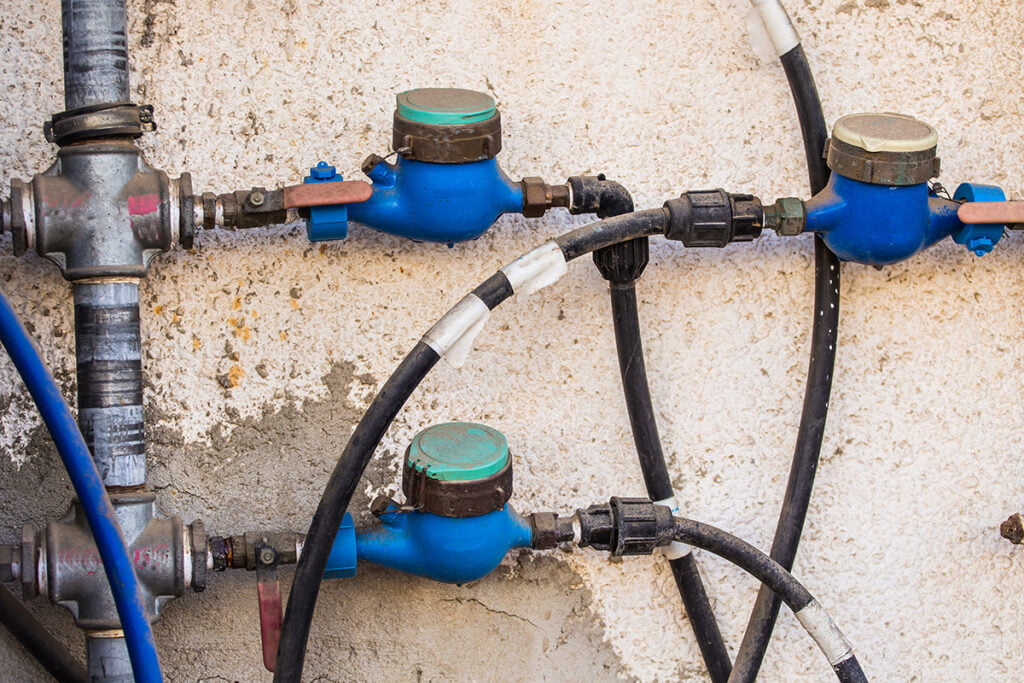Water is a precious resource, and managing its usage efficiently is crucial, especially in multi-unit premises such as apartment buildings or condominiums. Water sub-meters offer a definitive solution for unlocking the potential of water management in these settings. This blog provides a comprehensive overview of water sub-meters, highlighting their benefits, advantages, cost-saving potential, efficiency, equitable usage, and role in conservation and savings.
Understanding the Potential of Water Sub-Meters
Water sub-meters are individual meters installed within multi-unit premises to measure the water consumption of each unit separately. This approach contrasts with the traditional master-metering system, where the entire property’s water usage is billed collectively. By implementing water sub-meters, property owners and managers can gain valuable insights into individual consumption patterns, driving more efficient water management strategies.
Water Sub-Meters Benefits
1- Enhancing Multi-Unit Premises Water Management
Water sub-meters play a vital role in enhancing water management in multi-unit premises. By tracking and monitoring individual consumption, property owners and managers can identify high water users, implement targeted conservation initiatives, and provide resources and incentives for residents to reduce their consumption.
2- Advantages of Water Sub-Metering
Water sub-metering offers numerous advantages. It enables accurate measurement and allocation of water usage, allowing residents to make informed decisions about their consumption. It also promotes responsibility and accountability among residents, encouraging water-saving practices and a sense of ownership over their usage.
Cost-Saving with Water Sub-Meters
1- Fair Billing and Individual Consumption Tracking
Water sub-meters facilitate fair billing by accurately measuring individual consumption. This eliminates cross-subsidization, where heavy water users are subsidized by lighter users, and ensures that residents pay for their actual usage. Fair billing encourages residents to be mindful of their water consumption, leading to reduced overall consumption and cost savings for both individuals and the community.
2- Leak Detection and Reduction in Water Losses
Water sub-meters enable the early detection of leaks and inefficient fixtures. Abnormal usage patterns indicate potential leaks, allowing property owners and managers to address them promptly. By reducing water losses and preventing wastage, water sub-meters contribute to cost savings and conservation efforts.
Efficiency of Water Sub-Metering
1- Data-Driven Decision Making
Water sub-meters provide valuable data on individual consumption patterns, helping property owners and managers make data-driven decisions. This data can guide infrastructure upgrades, such as installing water-efficient fixtures or implementing water recycling systems, leading to optimized water usage and improved efficiency.
2- Targeted Conservation Efforts
With access to detailed consumption data, property owners and managers can implement targeted conservation efforts. By identifying high-consumption units, they can provide resources, educational materials, and incentives to encourage residents to reduce their water usage. This proactive approach promotes conservation, resulting in overall water savings.
Water Sub-Meters for Equitable Usage
1- Eliminating Cross-Subsidization
Water sub-meters play a crucial role in promoting equitable water usage in multi-unit premises. Traditional master-metering systems often lead to unfair cross-subsidization, where residents who consume less water end up subsidizing the excessive usage of others. Water sub-meters eliminate this disparity by accurately measuring individual consumption and allocating costs accordingly. Each resident is responsible for their own water bill based on their actual usage, ensuring fairness and eliminating the burden on lighter water consumers.
2- Promoting Responsibility and Accountability
By implementing water sub-meters, residents become more accountable for their water usage. They have access to their consumption data, allowing them to monitor and manage their own usage patterns. This transparency fosters a sense of responsibility among residents, encouraging them to adopt water-saving practices and make conscious choices to reduce their consumption. Additionally, water sub-meters create a heightened awareness of the environmental impact of water usage, fostering a community-driven approach towards conservation efforts.
Water Sub-Meters for Conservation and Savings
1- Empowering Residents for Water Conservation
Water sub-meters empower residents to actively participate in water conservation efforts. By having access to their consumption data, residents can monitor their usage, identify areas where they can reduce consumption, and track the effectiveness of their conservation efforts over time. This hands-on approach instills a sense of ownership and encourages a collective effort towards sustainable water consumption practices.
2- Financial Incentives for Reduced Consumption
In addition to promoting environmental stewardship, water sub-meters offer financial incentives for residents to reduce their water consumption. By accurately measuring individual usage and implementing fair billing practices, residents are directly motivated to conserve water in order to lower their water bills. This creates a win-win situation where residents save money while contributing to the overall conservation efforts of the community.
Conclusion
Water sub-meters hold immense potential for multi-unit premises in unlocking efficient water management, promoting equitable water usage, and driving conservation and cost savings. With benefits such as accurate measurement and allocation of water usage, early leak detection, fair billing, and enhanced efficiency, water sub-meters empower property owners, managers, and residents to make informed decisions and take proactive steps towards sustainable water consumption.
By promoting responsible water usage, eliminating cross-subsidization, and providing financial incentives for conservation, water sub-meters create a culture of accountability and foster a sense of community-driven conservation efforts. Ultimately, the implementation of water sub-meters contributes to the larger goal of environmental sustainability, ensuring the availability of this precious resource for future generations.
It is time for multi-unit premises to recognize the potential of water sub-meters and embrace their benefits. By doing so, they can unlock the power of efficient water management, promote equitable usage, drive conservation efforts, and achieve significant cost savings while preserving our valuable water resources for a greener future.

